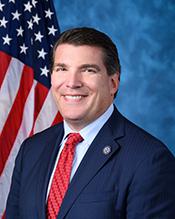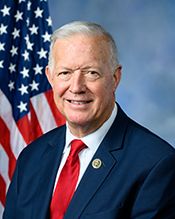0
0
0
Proposing a balanced budget amendment to the Constitution of the United States.
1/28/2025, 2:13 PM
Summary of Bill HJRES 17
Bill 119 HJRes 17 proposes a balanced budget amendment to the Constitution of the United States. This amendment would require the federal government to operate with a balanced budget, meaning that its spending cannot exceed its revenue. The goal of this amendment is to ensure that the government does not accumulate excessive debt and to promote fiscal responsibility.
The amendment would also require a three-fifths majority vote in both the House of Representatives and the Senate in order to approve any budget that is not balanced. This would make it more difficult for the government to pass budgets that result in deficits.
Supporters of the balanced budget amendment argue that it is necessary to prevent the government from overspending and accumulating unsustainable levels of debt. They believe that a balanced budget requirement would force the government to make tough decisions about spending priorities and would ultimately lead to a more efficient and responsible use of taxpayer dollars. Opponents of the amendment argue that it could limit the government's ability to respond to economic downturns or emergencies by restricting its ability to borrow money. They also argue that a balanced budget requirement could lead to cuts in important programs and services, such as social security and Medicare. Overall, the balanced budget amendment proposed in Bill 119 HJRes 17 is a controversial issue that has sparked debate among lawmakers and the public. It remains to be seen whether this amendment will gain enough support to be passed into law.
The amendment would also require a three-fifths majority vote in both the House of Representatives and the Senate in order to approve any budget that is not balanced. This would make it more difficult for the government to pass budgets that result in deficits.
Supporters of the balanced budget amendment argue that it is necessary to prevent the government from overspending and accumulating unsustainable levels of debt. They believe that a balanced budget requirement would force the government to make tough decisions about spending priorities and would ultimately lead to a more efficient and responsible use of taxpayer dollars. Opponents of the amendment argue that it could limit the government's ability to respond to economic downturns or emergencies by restricting its ability to borrow money. They also argue that a balanced budget requirement could lead to cuts in important programs and services, such as social security and Medicare. Overall, the balanced budget amendment proposed in Bill 119 HJRes 17 is a controversial issue that has sparked debate among lawmakers and the public. It remains to be seen whether this amendment will gain enough support to be passed into law.
Congressional Summary of HJRES 17
This joint resolution proposes a constitutional amendment prohibiting total outlays for a fiscal year from exceeding total receipts for that fiscal year unless Congress authorizes the excess by a two-thirds roll call vote of each chamber. The prohibition excludes outlays for repayment of debt principal and receipts derived from borrowing.
The amendment also requires the President to submit an annual budget in which total outlays do not exceed total receipts.
Read the Full Bill
Current Status of Bill HJRES 17
Bill HJRES 17 is currently in the status of Bill Introduced since January 13, 2025. Bill HJRES 17 was introduced during Congress 119 and was introduced to the House on January 13, 2025. Bill HJRES 17's most recent activity was Referred to the House Committee on the Judiciary. as of January 13, 2025
Bipartisan Support of Bill HJRES 17
Total Number of Sponsors
5Democrat Sponsors
0Republican Sponsors
5Unaffiliated Sponsors
0Total Number of Cosponsors
1Democrat Cosponsors
0Republican Cosponsors
1Unaffiliated Cosponsors
0Policy Area and Potential Impact of Bill HJRES 17
Primary Policy Focus
Economics and Public FinanceAlternate Title(s) of Bill HJRES 17
Proposing a balanced budget amendment to the Constitution of the United States.
Proposing a balanced budget amendment to the Constitution of the United States.
Comments

Gia Stern
484
10 months ago
I think this bill is a good idea. It will help to keep things in check and make sure we're not spending more than we have. It's about time we start being responsible with our money. This will definitely have an impact on me and my family.
Sponsors and Cosponsors of HJRES 17
Latest Bills
ADS for Mental Health Services Act
Bill S 414December 10, 2025
ASCEND Act
Bill S 1437December 10, 2025
Miccosukee Reserved Area Amendments Act
Bill HR 504December 10, 2025
To redesignate certain facilities at Paterson Great Falls National Historical Park in honor of Congressman Bill Pascrell, Jr.
Bill HR 249December 10, 2025
A bill to prohibit Big Cypress National Preserve from being designated as wilderness or as a component of the National Wilderness Preservation System, and for other purposes.
Bill S 446December 10, 2025
A bill to designate a mountain in the State of Alaska as Denali.
Bill S 573December 10, 2025
A bill to remove restrictions from a parcel of land in Paducah, Kentucky.
Bill S 601December 10, 2025
A bill to amend the National Trails System Act to direct the Secretary of the Interior to conduct a study on the feasibility of designating the Bonneville Shoreline Trail.
Bill S 1135December 10, 2025
A bill to extend the authority for modifications to the Second Division Memorial in the District of Columbia.
Bill S 1353December 10, 2025
Fallen Servicemembers Religious Heritage Restoration Act
Bill HR 2701December 10, 2025
Proposing a balanced budget amendment to the Constitution of the United States.
Bill HJRES 10January 16, 2025
.Proposing a balanced budget amendment to the Constitution requiring that each agency and department's funding is justified.
Bill HJRES 11January 14, 2025


